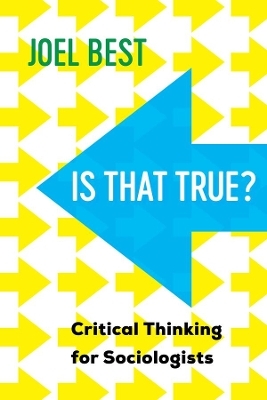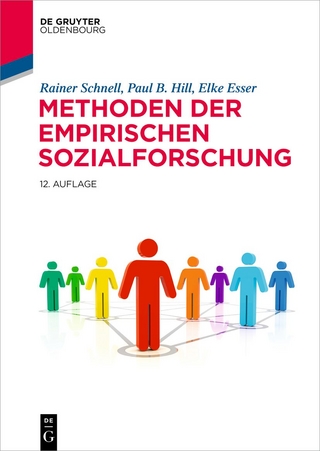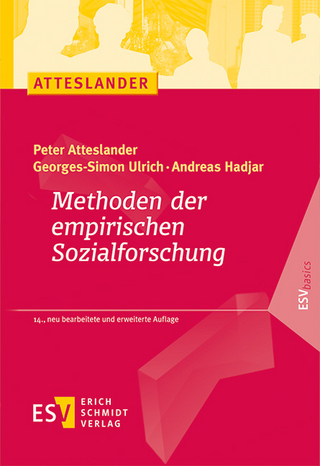
Is That True?
University of California Press (Verlag)
978-0-520-38140-7 (ISBN)
With inimitable style that melds ethnographic verve with dry humor, Best examines the ways in which sociologists engage in fuzzy thinking through bias, faddish cultural waves, spurious reasoning, and implicit bias. The short chapters cover:
A general introduction to critical thinking and logic in the social sciences
Sociology as an enterprise
Key issues in thinking critically about sociological research
Challenging questions that confront sociologists and a call for the discipline to meet those challenges.
Students across disciplines will learn the building blocks of critical thinking in a sociological context and come away with key concepts to put into practice.
Joel Best is Professor of Sociology and Criminal Justice at the University of Delaware. He is the author of the best-selling Damned Lies and Statistics, Stat-Spotting, and American Nightmares.
Acknowledgments
1. What Is Critical Thinking?
2. The Basics: Arguments and Assumptions
3. Everyday Arguments
Anecdotes • Ad Hominem Arguments • Myths • Folk Wisdom and Metaphors • Facts • Everyday Reasoning
4. The Logic of Social Science
Patterns • Causality • Judging Social Scientific Claims • The Importance of Evidence
5. Authority and Social Science Arguments
Challenges for Social Science • The Case of Sociology • Thinking about Sociology and Critical Thinking
6. Sociology as a Social World
Camps • Envy • Sociology’s Subdivisions
7. Orientations
Optimism and Pessimism • Team Culture and Team Structure • Insiders and Outsiders • Tragedy and Comedy • The Importance of Orientations Contents
8. Words
Jargon • Word Fads • Definitions • Concept Creep
9. Questions and Measurements
Sociological Questions • Empirical Questions • Measurement • What Is Being Measured? • Questioning Measurements
10. Variables and Comparison
Variables • Issues with Comparison • Varieties of Comparative Findings • Replication • Comparison in Qualitative Research • Questioning Comparisons
11. Tendencies
Patterned Tendencies • The Ecological Fallacy • The Modesty of Sociological Explanations • Thinking about Tendencies
12. Evidence
Effective Evidence • Not-So-Effective Evidence • Questioning Evidence Choices • Questions about Research
13. Echo Chambers
Recognizing and Addressing One’s Own Biases • Expectations and Sociologists • The Complications of Ideological Homogeneity • The Importance of Self-Criticism
14. Tough Topics
Cultural Waves • Good Guys and Bad Guys • Taboos • Thinking about What’s Difficult
Afterword: Why Critical Thinking Is Important
Notes
References
Index
| Erscheinungsdatum | 19.03.2021 |
|---|---|
| Zusatzinfo | 3 tables |
| Verlagsort | Berkerley |
| Sprache | englisch |
| Maße | 140 x 210 mm |
| Gewicht | 227 g |
| Themenwelt | Schulbuch / Wörterbuch ► Lexikon / Chroniken |
| Sozialwissenschaften ► Soziologie ► Empirische Sozialforschung | |
| ISBN-10 | 0-520-38140-8 / 0520381408 |
| ISBN-13 | 978-0-520-38140-7 / 9780520381407 |
| Zustand | Neuware |
| Haben Sie eine Frage zum Produkt? |
aus dem Bereich


